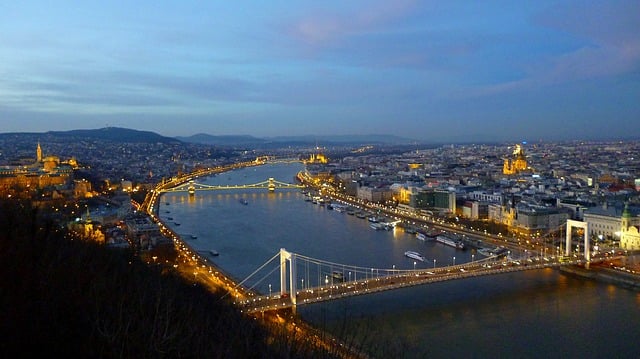“Why learn languages when everybody speaks English?” Nothing will infuriate a polyglot more than this question, but increasingly it is more difficult to counter. Today’s globalised world is more Anglophone than ever, with most countries (except France) showing growing English proficiency year on year. Now when you go abroad and start stuttering your half-learnt phrases of the local tongue, you’re more and more likely to get a sympathetic smile back and be asked: “Perhaps you speak English?”
That is what I am told by my antiglot friends. But as a polyglot, I simply cannot accept that it’s true. For me languages are about far more than ordering cocktails on the beach and saying “grassy ass”. And travelling means more than just navigating those situations. I want to see, hear, and experience different places for myself, and that’s only possible by speaking to local people in local languages. No language is going to vanish just because more people are learning English. And if fewer people are learning other languages too, then I guarantee your efforts will be even more highly rewarded.
But there are two other problems with the “everybody speaks English” assertion. Firstly we cannot assume that because English is a kind of lingua franca now that it always will be. Spanish is giving it a close run for its money, with over 14 million students at Cervantes Institutes worldwide, and nearly 40 million speakers in the US, and counting. And don’t underestimate how big Mandarin Chinese will become as nearly a billion native speakers become more mobile and business savvy. Tourism from China to South East Asia alone has been increasing at 70% per year, and might even whisk the market from under the feet of the flip flop-cladded, sunburnt British backpackers who are enjoying it for now.
But secondly, the idea that you can go anywhere and speak English is, in my experience, simply untrue. On my travels “Do you speak English?” is frequently met with a blank, horrified stare, and a lack of English-language menus regularly leads to a deadly dance with food poisoning. So check out this list of ten places where English isn’t that useful, there may even be some surprises.
1. France The problem is not just that people don’t speak English, but that they are forgetting what they do know at a drastic rate. Last year France recorded the sharpest drop in English proficiency of any European country, behind only Saudi Arabia, Algeria, Iran and Qatar globally. Any proud Frenchman will tell you French is still a world language and there’s no need to learn any others, but perhaps this is foreboding of English’s future to come?

2. Thailand Despite becoming a major tourist destination in recent years, Thailand still has one of the lowest rates of English proficiency in the world. This has resulted in hilarious mistranslations of menus and some perturbing signage, but also some more serious problems should anything go wrong and tourist-level English no longer cuts it. As tourism here’s becoming more Asian rather than Western orientated, there is no guarantee that Thai people will still prefer English over say Mandarin, either.

3. Hungary Hungarian is a notoriously difficult language, and this year Hungary ranked as the least Anglophone country in the European Union, with barely 20% of people able to hold a conversation. Knowing that while planning a trip to its capital Budapest (one of Europe’s greatest cities) you’d be mad not to learn some basic phrases or how to read a map. Otherwise, when you arrive you might think you’ve landed on Mars.

4. Turkey One of the world’s fastest growing economies is also one of the worst at English. By European standards Turkey is an enormous country of nearly 80 million people, with its cosmopolitan centre Istanbul ranked as one of the largest cities in the world. The Aegean coast is popular among tourists too, so knowing some basics may come in handy on your next holiday. Nearly 6 million Turks call Germany their home, so even German might get you further here than English.

5. Brazil The home of football is not the home of English. Brazil is the largest Portuguese speaking country in the world but is just above Turkey for English proficiency. Nested comfortably in South America, and surrounded mainly by Spanish speaking countries, there isn’t an immediate need for English here like elsewhere, and there is relatively low demand for learning it. Some see Spanish as a more worthwhile investment, and in 2005 the government passed a law requiring all schools to teach Spanish as well as English, which soon might be one way to get by.









